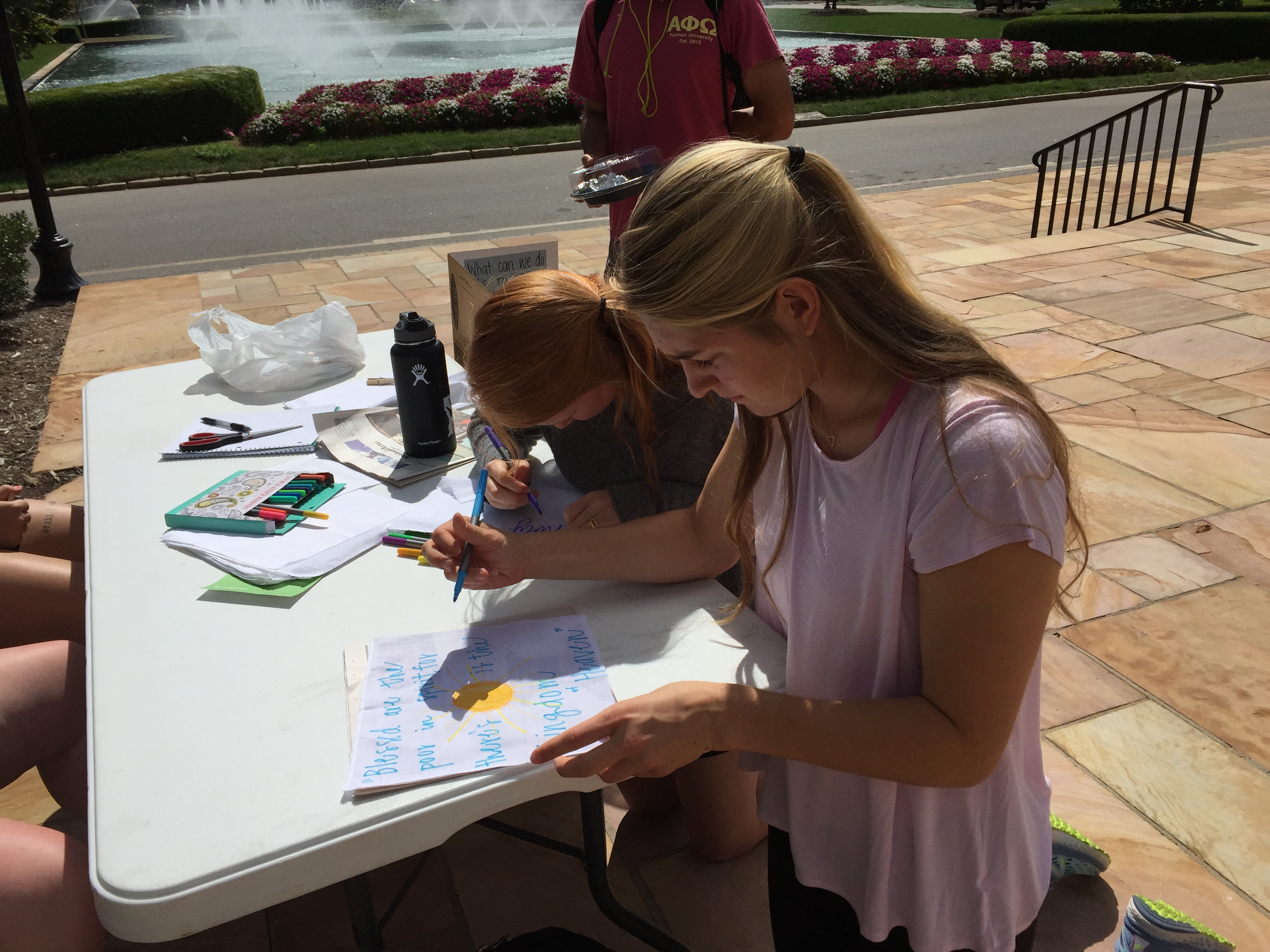
Poverty and homelessness are issues in the Greenville community that many students at Furman interact with through volunteer work or civic engagement. However, there are other ways students learn about and confront these issues, specifically through an academic lens.
Unbeknownst to many, the poverty studies minor has the largest number of students of any minor on campus. Additionally, the department welcomed its first full-time staff member, Furman alum Laura Bardin, class of ‘16 , into its fold as the Poverty Studies Coordinator this fall. Even with the recent growth of the academic department here on campus, one student organization has put in additional hours and hard work to advance the awareness of these hard-hitting issues.
The Furman University Poverty Awareness Action Committee (FUPAC) is a student-led organization that seeks to expand awareness on the complex issues surrounding poverty. Not only does the organization educate and bring to light the presence of poverty in the United States, but also tackles the results thereof head on. Going a step further, the student organization is not content to merely help raise awareness, but strives to cultivate conversations with students, professors and the community, which may lead to tangible solutions.
When FUPAC president Noah Zimmermann, class of ‘18, was asked about the organization’s mission on campus, he commented on this desire to promote not only awareness of poverty in American society but also the hope to cultivate solutions to the complex problems it creates.
“[Our] stated purpose is to raise awareness of poverty and inequality in today’s society by exploring the complex realities of the causes and the multifaceted nature of possible solutions to poverty,” Zimmermann said via email. “The committee aims to foster rich student discussion through forums with students, professors and outside speakers and to provide students with first-hand experience with poverty in the Greenville community.”
Last week, FUPAC lived up to that mission when they kicked off the first Poverty Awareness Week on campus. Organizations outside of the University were brought in to foster candid conversations on poverty, its causes and effects. Weeklong Cultural Life Program (CLP) events included discussions between faculty and staff, and hands-on activities for students to experience some effects of poverty first-hand. According to Poverty Studies Coordinator Laura Bardin, “FUPAC planned a week’s worth of activities.”
The week started off when Pastor Deb Richardson-Moore from the Triune Mercy Center and author of “The Weight of Mercy” came to Furman to offer students and professors her perspective on homelessness and poverty Sept. 19. Additionally, she discussed what Furman students could do about it.
Tuesday, the improvisational group The Playback Café from the Triune Mercy Center came to campus for a show. They addressed hard questions such as the perceptions of poverty and welfare through a theatrical performance.
Additional events during the week consisted of a screening of the documentary Living on One Dollar, a hosted conversation that featured art by the collective Speaking Down Barriers and a DIY opportunity where students made and hung prayer flags, decorated with reflections on poverty.
Zimmermann spoke to FUPAC’s goals for the week saying, “The goals for the week to put on events on campus that could begin discussion of a topic that is easy to lose sight of at Furman, but one that still deserves to be talked about. By getting people to reflect on the nature and causes of poverty, [this] week attempts to engage and challenge students.
“It was my hope that the week could get students to think about how poverty plays a role in their life, the lives of their friends, their community and the world. By thinking about these things, the week hopefully inspires students to make a real attempt at changing the way that we see poverty in our lives and the world, and maybe even inspire action,” Zimmerman said.
By hosting a myriad of dynamic events, FUPAC provided students with space to question their preconceptions of poverty and the demographics of our society affected by its widespread occurrence.
